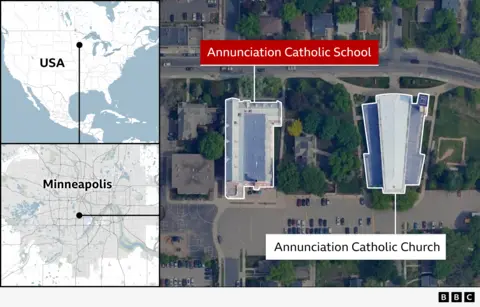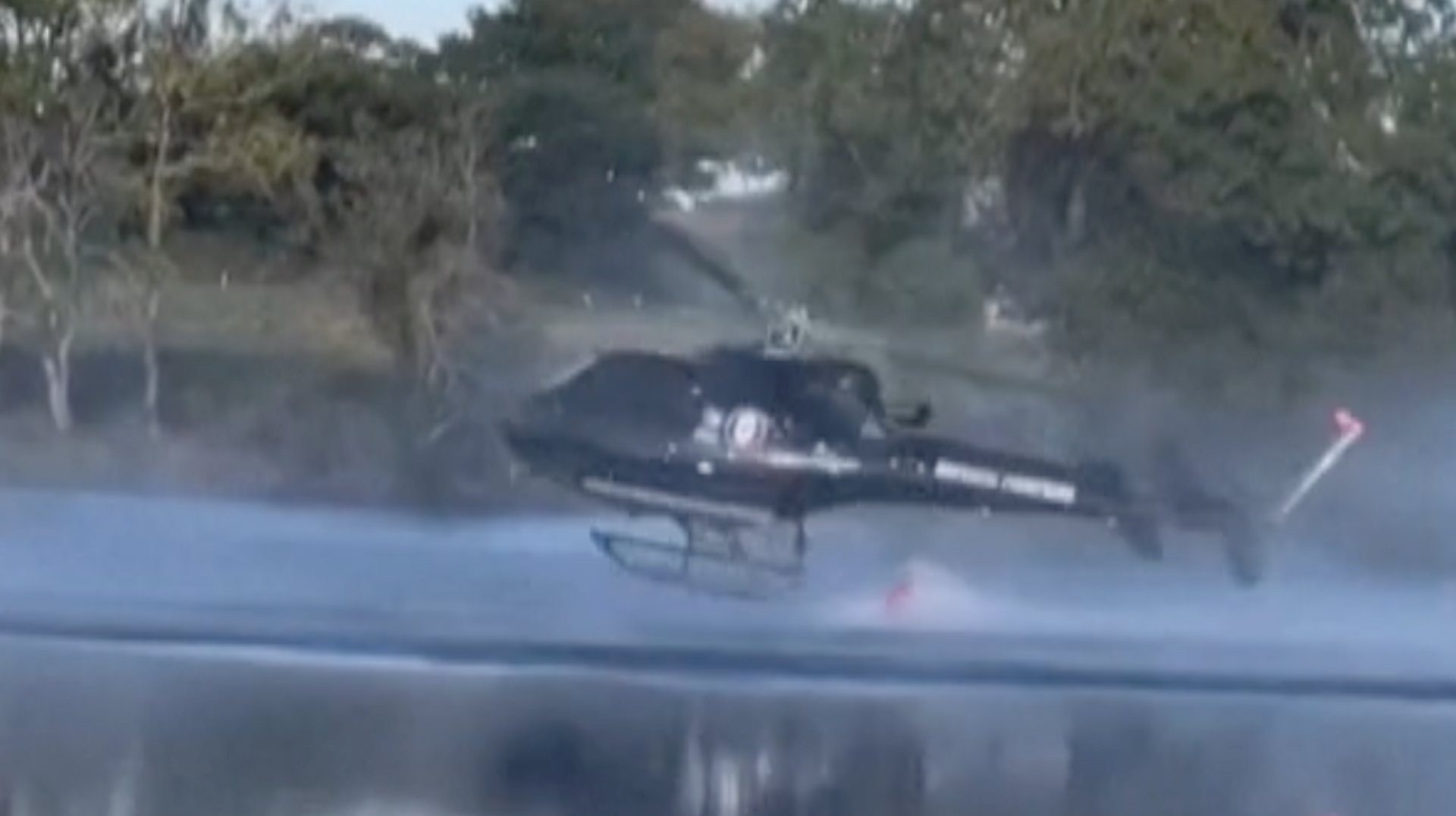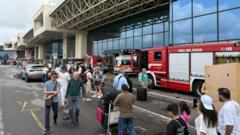A group of six Republican Congress members express concerns over smoke from Canadian wildfires affecting outdoor activities in U.S. states.
**Summary**
Amid escalating concerns over wildfire smoke drifting from Canada into the U.S., six Republican lawmakers from Wisconsin and Minnesota have called on Canadian officials to disclose their plans for wildfire management. They argue the smoke is detrimentally impacting outdoor summer activities, prompting criticism from Canadian authorities.
In a move to address the growing haze caused by wildfires in Canada, six Republican lawmakers from Wisconsin and Minnesota are urging Canadian officials to take action. They expressed their grievances in an official letter directed to Kirsten Hillman, Canada's ambassador to the U.S., highlighting the adverse effects of smoke on summer recreational activities in their states.
Tom Tiffany, a Republican congressman from Wisconsin and a key author of the letter, emphasized the situation saying, “In our neck of the woods, summer months are the best time of the year to spend time outdoors... But this wildfire smoke makes it difficult to do all those things.” He and his colleagues have accused the Canadian government of inadequate forest management which, they assert, has exacerbated the conditions leading to "suffocating" smoke drifting south.
The bipartisan letter has garnered attention as Canada grapples with its wildfires, with officials in Canada promising to review the letter. Tarryn Elliott from the Canadian Embassy stressed that Canada is serious about wildfire prevention and management strategies.
In response, Manitoba's Premier Wab Kinew criticized the Republican lawmakers for their comments, suggesting they were trivializing the situation in Canada, where wildfires have tragically resulted in loss of life. Kinew stated, "These lawmakers are trying to trivialize a wildfire season where we’ve lost lives in our province,” underscoring the seriousness of the wildfire crisis affecting both nations.
As discussions continue, the lawmakers await a response from Canada’s government while communities in the U.S. remain affected by the smoke.
**Summary**
Amid escalating concerns over wildfire smoke drifting from Canada into the U.S., six Republican lawmakers from Wisconsin and Minnesota have called on Canadian officials to disclose their plans for wildfire management. They argue the smoke is detrimentally impacting outdoor summer activities, prompting criticism from Canadian authorities.
In a move to address the growing haze caused by wildfires in Canada, six Republican lawmakers from Wisconsin and Minnesota are urging Canadian officials to take action. They expressed their grievances in an official letter directed to Kirsten Hillman, Canada's ambassador to the U.S., highlighting the adverse effects of smoke on summer recreational activities in their states.
Tom Tiffany, a Republican congressman from Wisconsin and a key author of the letter, emphasized the situation saying, “In our neck of the woods, summer months are the best time of the year to spend time outdoors... But this wildfire smoke makes it difficult to do all those things.” He and his colleagues have accused the Canadian government of inadequate forest management which, they assert, has exacerbated the conditions leading to "suffocating" smoke drifting south.
The bipartisan letter has garnered attention as Canada grapples with its wildfires, with officials in Canada promising to review the letter. Tarryn Elliott from the Canadian Embassy stressed that Canada is serious about wildfire prevention and management strategies.
In response, Manitoba's Premier Wab Kinew criticized the Republican lawmakers for their comments, suggesting they were trivializing the situation in Canada, where wildfires have tragically resulted in loss of life. Kinew stated, "These lawmakers are trying to trivialize a wildfire season where we’ve lost lives in our province,” underscoring the seriousness of the wildfire crisis affecting both nations.
As discussions continue, the lawmakers await a response from Canada’s government while communities in the U.S. remain affected by the smoke.




















